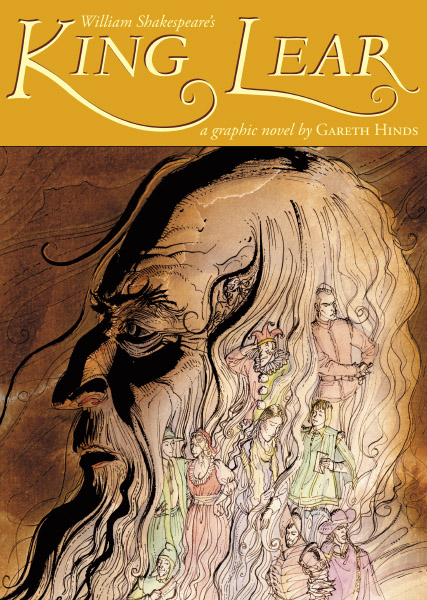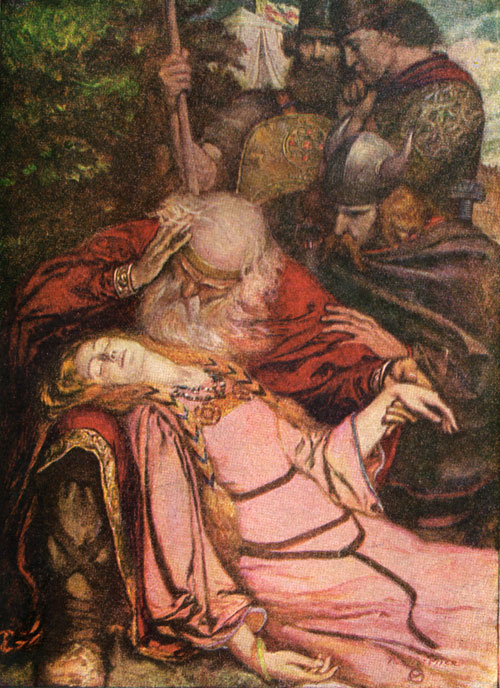
As difficult as I thought it was to find some sense of happiness in Oedipus Rex, I think I was almost more lost when I first started thinking about King Lear. Being a Shakespearean tragedy, the story does not lend itself very easily to happiness and positive feelings. There's not a great deal of places throughout the play where the audience or the characters experience a sense of euphoria or elation. As complex as the story is, there just doesn't seem to be a bunch of places where we can close our book and feel super happy for the characters, or ourselves. But as I started looking a little more closely at the text, I found Shakespeare doesn't necessarily hand out happiness openly, but rather sneakily tosses in some opportunities for happiness to occur. He places the "Fool" with the King for a majority of the text, proposing that if he would only listen to the wisdom how Fool has to offer, he could seek happiness. All the while the Fool himself seems to be aware that happiness is obtainable, especially since he knows how to attain it, but it simply cannot for this is Lear’s journey, not his. He appears to be one of the few who has the capacity to acknowledge happiness, but I feel he holds himself back because he feels the King needs to figure things out for himself. There are also places in the text where Shakespeare strategically shows the potential for happiness, especially towards the end of the play. When Cordelia returns to Lear, they share a brief encounter with joyfulness and the hope that the future is promising. But then she is hanged, and he subsequently dies because of it. All throughout the plot there are multiple letters, hopefully bearing peaceful news. But alas, it never comes. When Edgar heroically saves his father after his attempted suicide, we believe that maybe, just maybe, there is happiness around the corner, waiting for the characters. But, Gloucester dies anyway. I don’t believe happiness is absent from the play. I just believe that Shakespeare does a fantastic job of placing it just out of arm’s reach.
With that being said, I feel like Shakespeare tries to hint at the fact that life, or this story at least, has potential for happiness but if offset by one wrong decision or bad choice. It will then have a domino effect to become a tragic plot. If Lear had simply thought about his actions before rashly diving power to Regan and Goneril, none of this would have happened.


